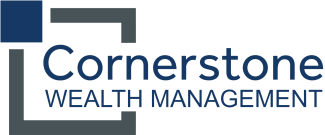
End of The Year Financial Review
What financial, business, or life priorities do you need to address for the coming year? Now is an excellent time to think about the investing, saving, or budgeting methods you could employ toward specific objectives, from building your retirement fund to managing your taxes. You have plenty of choices.
Keep in mind, this article is for informational purposes only, and not a replacement for real-life advice. Also, tax rules are constantly changing, and there is no guarantee that the tax landscape will remain the same in the years ahead.
Here are a few ideas to consider:
Can you contribute more to your retirement plans this year?
In 2020, the contribution limit for a Roth or traditional individual retirement account (IRA) is at $6,000 ($7,000 for those making “catch-up” contributions). Your modified adjusted gross income (MAGI) may affect how much you can put into a Roth IRA. With a traditional IRA, you can contribute if you (or your spouse if filing jointly) have taxable compensation, but income limits are one factor in determining whether the contribution is tax-deductible.1
If you have additional cash flow, consider increasing your 401k plan contributions in 2021. Try to at least contribute up to the maximum percentage for your company's match, if there is one.
Remember, withdrawals from traditional IRAs are taxed as ordinary income, and if taken before age 59½, may be subject to a 10% federal income tax penalty starting again in 2021. Roth IRA distributions must meet a five-year holding requirement and occur after age 59½ to qualify for tax-exempt and penalty-free withdrawal. Tax-free and penalty-free withdrawals from Roth IRAs can also be taken under certain other circumstances, such as a result of the owner’s death.2
Open a Health Savings Account.
A Health Savings Account (HSA) works a bit like your workplace retirement account. There are also some HSA rules and limitations to consider. You are limited to a $3,600 contribution for 2021 if you are single; $7,200 if you have a spouse or family. Those limits jump by a $1,000 “catch-up” limit for each person in the household over age 55.5
If you spend your HSA funds for non-medical expenses before age 65, you may be required to pay ordinary income tax as well as a 20% penalty. After age 65, you may be required to pay ordinary income taxes on HSA funds used for nonmedical expenses. HSA contributions are exempt from federal income tax; however, they are not exempt from state taxes in certain states.
Review your withholding status.
Should it be adjusted due to any of the following factors?
- You tend to pay the federal or state government at the end of each year.
- You tend to get a federal tax refund each year.
- You recently married or divorced.
- You have a new job, and your earnings have been adjusted.
These are general guidelines and are not a replacement for real-life advice.
Make certain to consult your tax, human resources, or accounting professional before modifying your withholding status.
Are you coming home from active duty?
If so, go ahead and check on the status of your credit and any tax and legal proceedings that might have been preempted by your orders.
Consider the tax impact of any upcoming transactions.
Are you planning to sell any real estate this year? Are you starting a business? Might any commissions or bonuses come your way in 2021? Do you anticipate selling an investment that is held outside of a tax-deferred account?
If you are retired and in your seventies, remember your RMDs.
In other words, Required Minimum Distributions (RMDs) from retirement accounts. Under the SECURE ACT, in most circumstances, once you reach age 72, you must begin taking RMDs from most types of these accounts.6
Vow to focus on your overall health and practice sound financial habits in 2021.
Please call us at Cornerstone Wealth Management if there has been a change in your financial situations or investment objectives.
Cornerstone Wealth Management Disclosure
Information throughout this article, whether investment specific, charts, citations, or any other statements regarding market or other financial information, is obtained from sources which we, and our suppliers, believe reliable, but we do not warrant or guarantee the timeliness or accuracy of this information. The information and opinions contained in this website are provided by CWM for personal use and informational purposes only and are subject to change without notice. Nothing contained on this website constitutes investment, financial, legal, tax, or other advice or is to be relied on in making an investment or other decision. Nothing on this site should be interpreted to state or imply that past results are an indication of future performance.
This material was prepared by MarketingPro, Inc., and does not necessarily represent the views of the presenting party, nor their affiliates. This information has been derived from sources believed to be accurate. Please note - investing involves risk, and past performance is no guarantee of future results. The publisher is not engaged in rendering legal, accounting, or other professional services. If assistance is needed, the reader is advised to engage the services of a competent professional. This information should not be construed as investment, tax, or legal advice and may not be relied on for the purpose of avoiding any Federal tax penalty. This is neither a solicitation nor recommendation to purchase or sell any investment or insurance product or service, and should not be relied upon as such. All indices are unmanaged and are not illustrative of any particular investment.
Citations
1. thefinancebuff.com, August 12, 2020
2. usnews.com, February 12, 2020
3. irs.gov, April 3, 2020
4. nerdwallet.com, July 31, 2020
5. msn.com, August 19, 2020
6. thestreet.com, December 21, 2019
Our advisors may be reached at (440) 899-4000.

